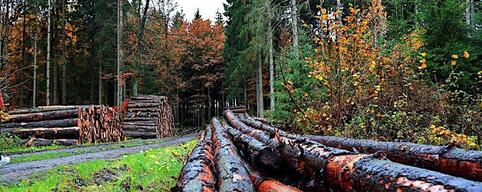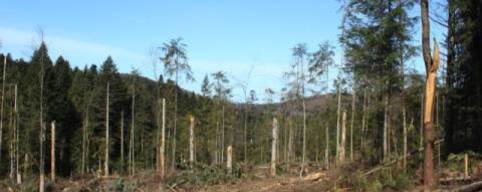

With the cessation of native logging practices in Victoria, many hoped that the region's iconic eucalypt forests would naturally recuperate. However, recent studies have unearthed a concerning trend indicating that these forests are struggling to regenerate, challenging previous assumptions about the resilience of these ecosystems.
Between 1980 and 2019, roughly 42,000 hectares of mountain ash forests in Victoria's Central Highlands were subjected to logging. Cutting-edge analysis utilizing satellite imagery, ground checks, and drone surveys has revealed that approximately 20% of these logged areas have not recovered, equating to a significant loss of about 8,000 hectares of forest. This finding is alarming as it evidences the failing resilience of these natural landscapes post-exploitation.
The recent study highlights a burgeoning issue over the past decade, as regeneration failures have increased markedly. Such challenges have been most pronounced in regions subjected to extreme conditions, where harsh terrains and climatic influences further hinder natural recovery efforts.
The inability of these forests to regenerate poses a serious ecological concern. These ecosystems play a vital role in maintaining biodiversity and the health of the environment. The loss of forest cover not only compromises wildlife habitats but also disrupts ecological processes such as carbon cycles and water regulation.
The research underscores these changes as a major transformation within the ecosystem. The impacts are multifaceted, including a decline in species diversity and possible increases in greenhouse gas emissions due to loss of carbon storage. Additionally, these transformations can negatively affect the cultural and economic dimensions of the region, impacting local communities and tourism.
This study calls into question the efficacy of current post-logging management strategies. Traditional practices that relied on the assumption of natural resilience may no longer be viable under increasingly challenging climatic conditions. There is a pressing need to develop new approaches that better support forest regeneration, possibly incorporating assisted recovery and stricter environmental regulations.
Contemplating the future of Victoria’s eucalypt forests, it is clear that proactive measures must be instituted to ensure the long-term sustainability and resilience of these critical ecosystems. The findings prompt a reevaluation of how these natural resources are managed and conserved, as well as a concerted effort to address the underlying issues impeding natural recovery. Failure to adapt these strategies could further exacerbate the ecological consequences witnessed today.



